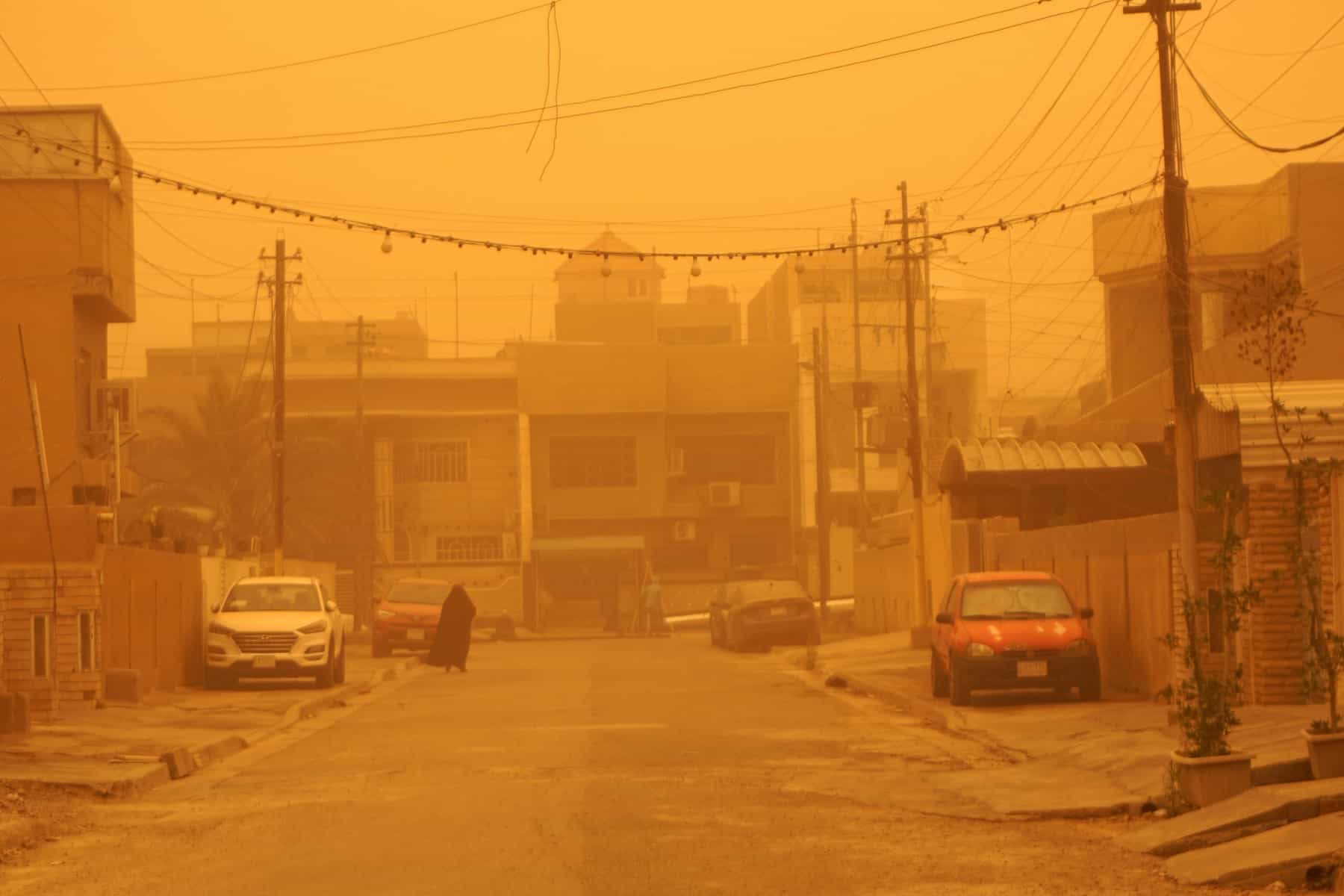Iraq on Sunday was yet again covered in a thick sheet of orange as it suffered the latest in a series of dust storms that have become increasingly common.
Flights were grounded due to poor visibility at airports serving the capital Baghdad and the Shiite holy city of Najaf, with the phenomenon expected to continue into Monday, according to the weather service.
“Flights have been interrupted at the airports of Baghdad and Najaf due to the dust storm,” the spokesman for the civil aviation authority, Jihad al-Diwan, told AFP.
Visibility was cited at less than 500 meters (550 yards), with flights expected to resume once the weather improves.
Iraq was hammered by a series of such storms in April, grounding flights and leaving dozens hospitalized with respiratory problems.
Amer al-Jabri, of Iraq’s meteorological office, previously told AFP that the weather phenomenon is expected to become increasingly common “due to drought, desertification and declining rainfall”.
Iraq is particularly vulnerable to climate change, having already witnessed record low rainfall and high temperatures in recent years.
Experts have said these factors threaten to bring social and economic disaster in the war-scarred country.
In November, the World Bank warned that Iraq could suffer a 20-percent drop in water resources by 2050 due to climate change.
In early April, environment ministry official Issa al-Fayad had warned that Iraq could face “272 days of dust” a year in coming decades, according to the state news agency INA.
The ministry said the weather phenomenon could be confronted by “increasing vegetation cover and creating forests that act as windbreaks”.







